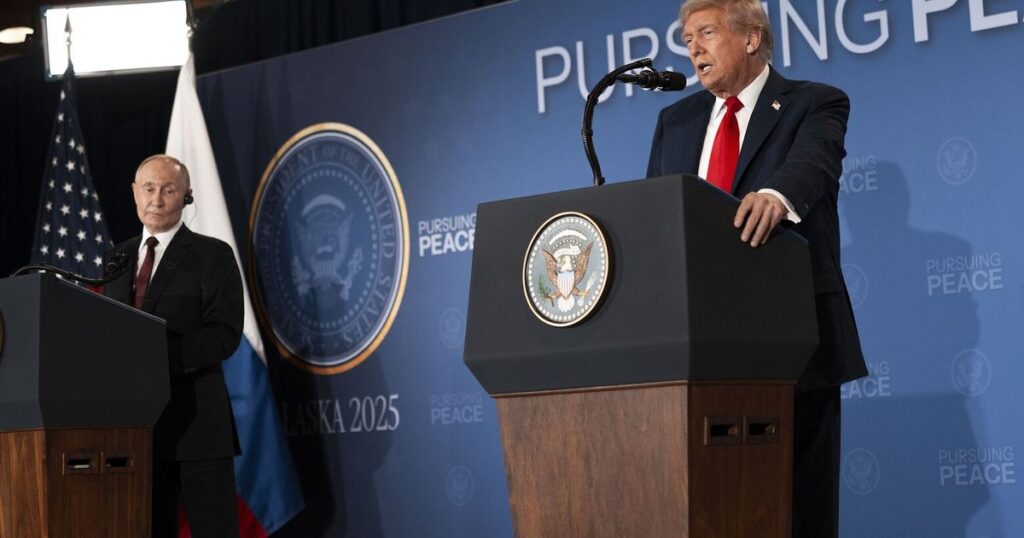The Trump administration this weekend downplayed a report that officials left in a public area of a hotel documents describing the confidential movements of President Donald Trump and President Vladimir Putin of Russia during their meeting in Alaska on Friday.
NPR reported earlier that the documents were left on a printer in the Hotel Captain Cook in downtown Anchorage, near Joint Base Elmendorf-Richardson, where Trump and Putin had their meeting about the war in Ukraine. The documents were produced by the Office of the Chief of Protocol, a position held by Monica Crowley, a former Fox News personality who served in Trump’s first term.
The papers were found around 9 a.m. Friday and sent to NPR by a guest of the hotel, who was granted anonymity. They listed the sequence of events, which included a smaller meeting with Trump, Putin and their top foreign policy advisers; an expanded meeting and working lunch with several Cabinet officials; a news conference; and an interview between Trump and Sean Hannity of Fox News.
The documents also included a lunch menu for a three-course luncheon held “in honor of his excellency Vladimir Putin.” Green salad, filet mignon, and halibut Olympia — a humble local favorite — were on the menu. But since the lengthy day of meetings was cut short Friday, the expanded meeting and the working lunch were bypassed in favor of an abrupt news conference between the two leaders, who did not take questions.
The White House and State Department have both derided the documents as a glorified lunch menu.
“Instead of covering the historic steps towards peace achieved at Friday’s summit, NPR is trying to make a story out of a lunch menu. Ridiculous,” Tommy Pigott, a State Department spokesperson, said in an email.
The White House did not respond to a request for comment Sunday, but NPR reported a day earlier that an administration spokesperson had characterized the papers as a “multipage lunch menu” and not a security breach.
The papers included precise times and locations of each meeting, as well as the phone numbers of several administration officials. Eliot A. Cohen, a former counselor in the State Department who served in the Bush administration, said in an interview that the administration had been both “sloppy” and “incompetent” in leaving behind the materials.
“Above all, they don’t have process,” said Cohen, who is now an analyst at the Center for Strategic and International Studies. “A well-drilled bureaucracy doesn’t do these things.”
But he added that the materials did not seem high-level or reveal state or military secrets.
“My guess is the Russians already have everybody’s phone numbers,” Cohen said.

